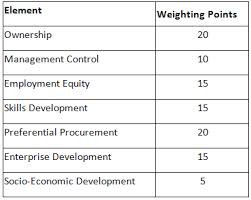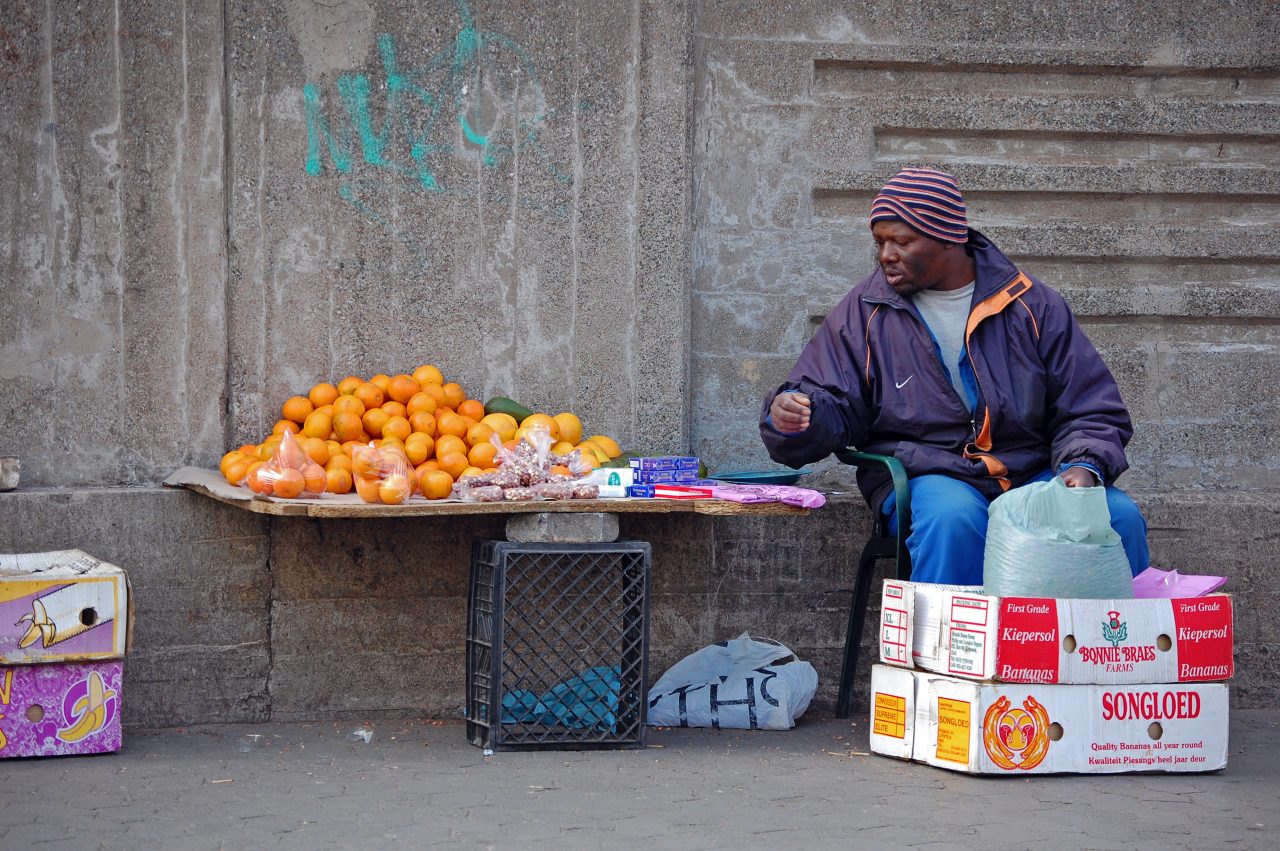Join GlobalBizzNetwork and start your international business network today.
BEE
South Africa’s policy of black economic empowerment (BEE later BBBEE) is not simply a moral initiative to redress the wrongs of the past. It is a pragmatic growth strategy that aims to realise the country’s full economic potential while helping to bring the black majority into the economic mainstream. In the decades before South Africa achieved democracy in 1994, the apartheid government systematically excluded African, Indian and coloured people from meaningful participation in the country’s economy. Despite the many economic gains made in the country since 1994, the racial divide between rich and poor remains.
One element of Broad-Based Black Economic Empowerment (BBBEE) policy is companies’ contribution to socio-economic development. This is translated into encouragement for companies to give back to the community through Corporate Social Investment (CSI). Under the BBBEE guidelines 1% of net profit before tax should be spent on social development, whereby companies are encouraged to have at least 75% non-white beneficiaries. BBBEE is enforced through preferential procurement, and compliance is necessary when companies aim to do business with government or large corporations. Most companies operating in South Africa therefore have a CSI policy whereby they support some form of charity or other type of development projects.
Towards broad-based growth
Black economic empowerment – or broad-based black economic empowerment, as it is technically known – is not affirmative action, although employment equity forms part of it. Nor does it aim to take wealth from one group and give it to another. It is essentially a growth strategy, targeting the South African economy’s weakest point: inequality.
Black economic empowerment is an important policy instrument aimed at broadening the economic base of the country – and through this, at stimulating further economic growth and creating employment. The strategy is broad-based, as shown in the name of the legislation: the Broad Based Black Economic Empowerment Act of 2003. This reflects the South African government’s approach, which is to “situate black economic empowerment within the context of a broader national empowerment strategy focused on historically disadvantaged people, and particularly black people, women, youth, the disabled, and rural communities”.
BEE objectives
Through its BEE policy, the SA government aims to achieve the following objectives:
- Empower more black people to own and manage enterprises. Enterprises are regarded as black-owned if 51% of the enterprise is owned by black people, and black people have substantial management control of the business.
- Achieve a substantial change in the racial composition of ownership and management structures and in the skilled occupations of existing and new enterprises.
- Promote access to finance for black economic empowerment.
- Empower rural and local communities by enabling their access to economic activities, land, infrastructure, ownership and skills.
- Promote human resource development of black people through, for example, mentorships, learnerships and internships.
- Increase the extent to which communities, workers, co-operatives and other collective enterprises own and manage existing and new enterprises, and increase their access to economic activities, infrastructure and skills.
- Ensure that black-owned enterprises benefit from the government’s preferential procurement policies.
- Assist in the development of the operational and financial capacity of BEE enterprises, especially small, medium and micro enterprises (SMMEs) and black- owned enterprises.
- Increase the extent to which black women own and manage existing and new enterprises, and facilitate their access to economic activities, infrastructure and skills training.
BEE codes and scorecard
The Broad-Based Black Economic Empowerment (B-BBEE) Codes of Good Practice emerged in 2007 to provide a standard framework for the measurement of BEE across all sectors of the economy. The codes require that all entities operating in the South African 
- The B-BBEE Act of 2003 makes the codes binding on all state bodies and public companies, and the government is required to apply them when making economic decisions on:
procurement, - licensing and concessions,
- public-private partnerships, and
- the sale of state-owned assets or businesses.
Private companies must apply the codes if they want to do business with any government enterprise or organ of state – that is, to tender for business, apply for licences and concessions, enter into public-private partnerships, or buy state-owned assets. Companies are also encouraged to apply the codes in their interactions with one another, since preferential procurement will affect most private companies throughout the supply chain.
Multinationals
The codes of good practice allow foreign multinational companies that do business in South Africa some flexibility in how they structure their empowerment deals. In particular, the B-BBEE Codes of Good Practice acknowledge that there may be multinationals whose global practices prevent them from complying with the ownership element of B-BBEE through the traditional sale of shares to black South Africans.
In such cases, the codes allow for contributions in lieu of a direct sale of equity. These contributions, known as “equity equivalent” contributions, count towards the ownership element of B-BBEE. The value of these contributions may be measured against 25% of the value of a multinational’s South African operations, or against 4% of the total revenue from its South African operations annually over the period of continued measurement. Foreign multinationals can submit proposals for Equity Equivalent Programmes to the Department of Trade and Industry for approval by the Minister of Trade and Industry in South Africa.
More information
The DTI has all the relevant documents and information on black economic empowerment available on a dedicated website at bee.thedti.gov.za. The site includes features such as:
- B-BBEE self assessment tool
- Step-by-step scorecard guide
- A B-BBEE registry
- A library of key documents, including legal documents and industry charters
Interesting reads:
The Broad-Based Black Economic Empowerment Act 53 of 2003









